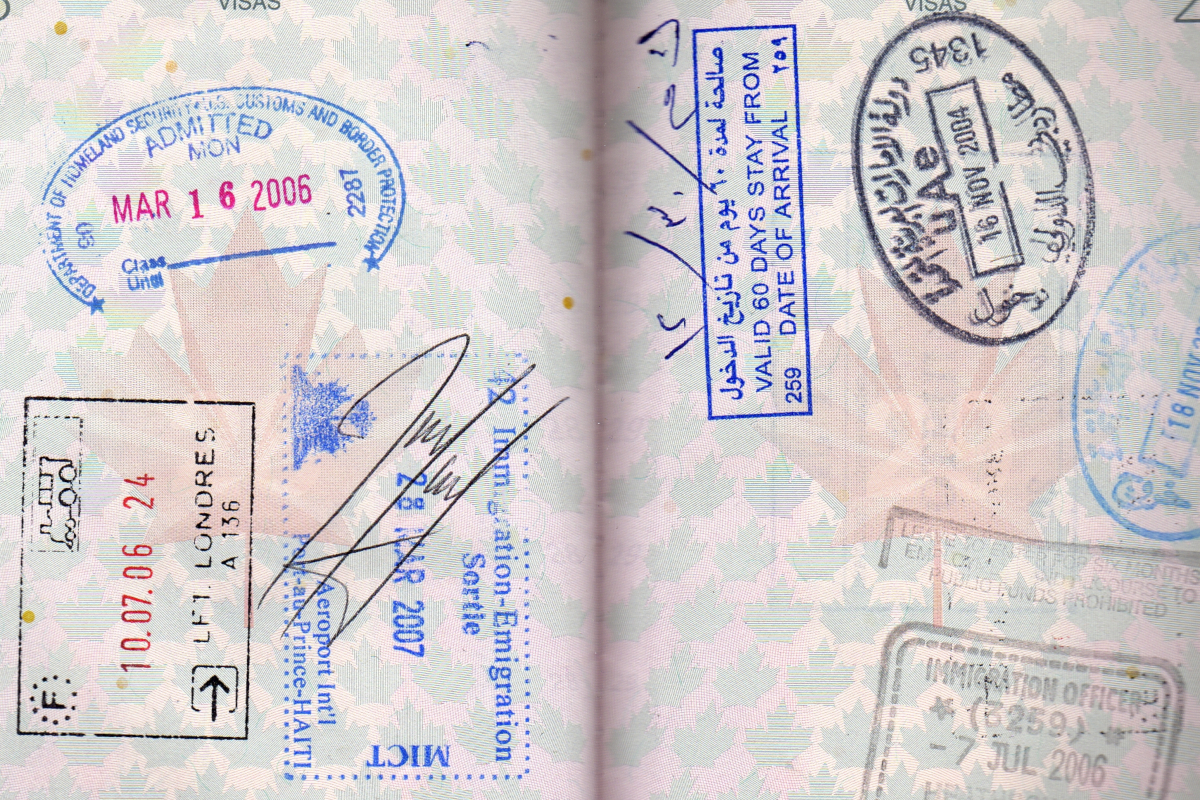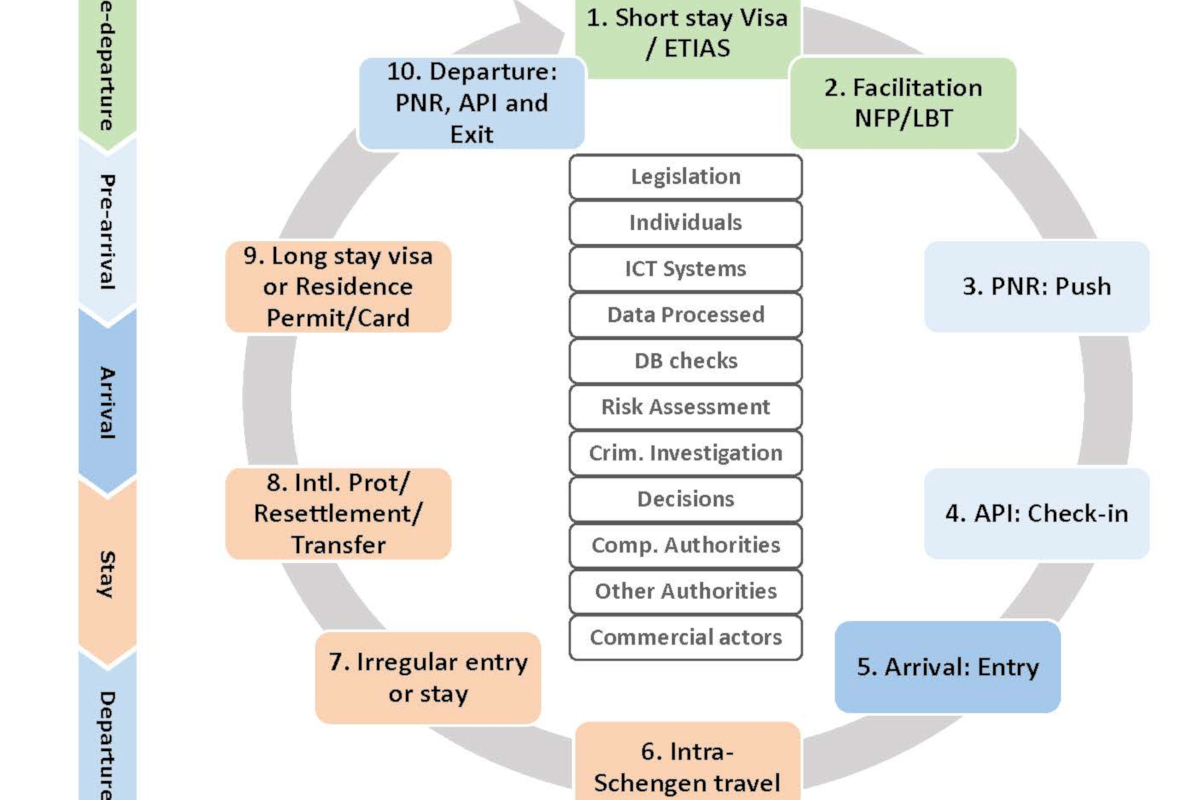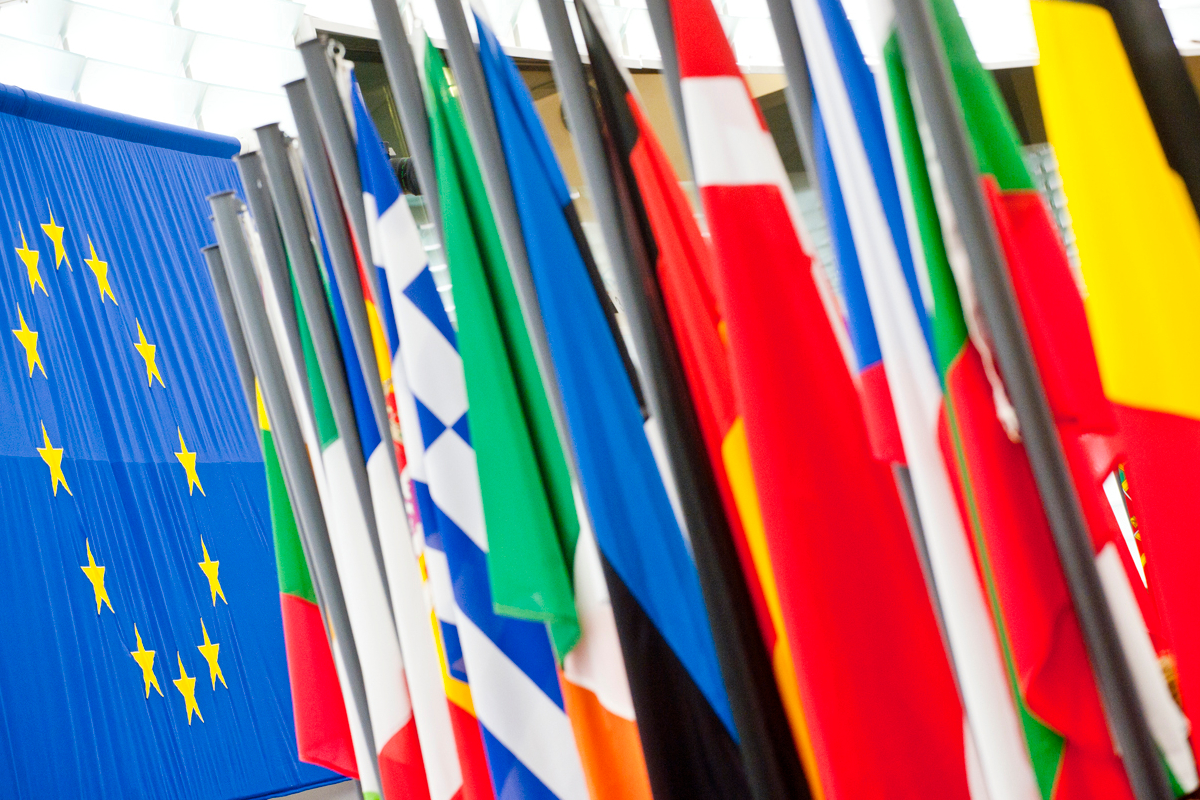News
Launched in 1999 and updated regularly, Statewatch News includes our own reporting and writing as well as articles, announcements, documents and analyses from elsewhere on civil liberties, EU policies and state practices. You can receive updates in your inbox by signing up to our mailing list, or use our RSS feed to get instant alerts.

Statement on French visa policy: discrimination and injustice
28 organisations from France, Morocco, Tunisia and Belgium yesterday published a statement denouncing France's refusal of visas to citizens of Maghreb countries "as a sanction because the latter refuse to repatriate their undocumented nationals." The statement condemns the approach of the French authorities as "a collective, unfair punishment, indiscriminately targeting all Algerians, Moroccans or Tunisians."

UK-EU: Police cooperation: the Home Office gets it wrong on data protection
Back in March, members of the House of Lords discussed the state-of-play of police and judicial cooperation between the UK and EU, and were informed by a government minister that such cooperation does not depend on maintaining adequate data protection standards. The text of the relevant UK-EU treaty, however, says otherwise.

EU: Council establishes new working party on defence industry as part of military push
On 29 June, member state ambassadors to the EU agreed to create an 'Ad hoc Working Party on defence industry'. This Working Party will report to the EU Foreign Affairs Council, providing advice on draft legislative acts and other legal acts on issues related to the European defence industrial and technological base (EDTIB) – that is, the military industry at large.

EU: Police plans for the “future of travel” are for “a future with even more surveillance”
Plans hatched by Europol and Frontex to develop a “European System for Traveller Screening” that would require massive data processing and automated profiling have been condemned as ushering in “a future with even more surveillance” by German left MEP Cornelia Ernst, who told Statewatch that “the daily lives of millions of people” should not be shaped by “agencies that long ceased to be controllable by the public and the parliament.”

USA: Attorneys and journalists illegally searched during visits with Julian Assange sue CIA and Michael Pompeo
Plaintiffs call on DOJ to drop charges; Members of legal team were illegally surveilled inside Ecuadorian embassy, violating fourth amendment. Indictment against Julian Assange cannot stand as a result of gross government misconduct.

Frontex celebrates "expanding footprint" beyond the EU in report on third country cooperation
EU border agency Frontex is obliged to report annually to the European Parliament, European Commission and Council of the EU on its cooperation with non-EU countries. The 2021 report, obtained by Statewatch and published here, focuses on an expanding influence in the Western Balkans, information sharing, the expansion of the European Border Surveillance System (EUROSUR) to non-EU states, and deportations.

Italy: Migration, borders and freedom of information: decree aims to “nullify any glimmer of transparency”
The decree, approved quietly in March, provides a blueprint for official opacity – vast swathes of documents are now deemed “inaccessible”.

UK: New campaign to keep Campsfield immigration detention centre closed
In 2019, Campsfield detention centre near Oxford was closed following the publication of a government review on the treatment of vulnerable people in immigration detention. Local campaigners had staunchly opposed the centre for years. Now, the government intends to reopen it and house up to 400 men there, pending deportation - possibly to Rwanda. A new campaign aims to halt the plans.

Minutes of the EU-USA justice and home affairs ministerial meeting
The meeting was held in Paris on 23 June 2022. Cybercrime, ransomware, child sexual abuse, environmental crime and judicial cooperation were all discussed under the heading of "prospects for strengthening transatlantic coooperation".

UK: Deployment of armed forces in support of civilian authorities on the rise
The use of the armed forces to support civilian authorities in the UK increased sharply in recent years, peaking during the Covid-19 pandemic emergency. From 2016 to 2019 there were between 123 and 157 requests per year within the Military Aid to Civilian Authorities (MACA), marked by a slow progressive increase. Requests grew to 550 in 2020 and then fell to 332 in 2021, returning close to pre-pandemic levels in 2022 (with 76 requests received until 26 May).

European Ombudsman: more transparency and fundamental rights training needed at Frontex
A strategic inquiry into Frontex's compliance with fundamental rights obligations under its enhanced mandate (2019 Regulation) concluded in January, with the Ombudsman “ask[ing] Frontex to improve its accountability”. The results are very mild compared to the OLAF report, excerpts of which were leaked by Der Spiegel on 28 July.

Frontex: agency gives limited outline of role of surveillance in Mediterranean
Responding to a Parliamentary question, Frontex's reply, published here, gives a cursory outline of how its aerial surveillance fits into search and rescue operations, and the agency's knowledge of "Maltese Armed Forces apparently allow[ing] fully loaded and obviously unseaworthy vessels to sail through their maritime rescue zone without taking the necessary measures".

EU: Research ethics in Horizon Europe: two presentations
The EU's research programmes have long been criticised for funding dubious surveillance technologies, and authorities have gone to substantial efforts to keep ethics reports secret - most notably in case of the automated lie detector project, iBorderCtrl. But how are ethics issues supposed to be identified and addressed in Horizon Europe research projects? Two presentations obtained by Statewatch set out how the process is meant to work.

EU: Tracking the Pact: Access to criminal records for “screening” of migrants
Under the Pact on Migration and Asylum, the “screening” of migrants who have entered the EU irregularly or who have applied for asylum will become mandatory. The aim is to establish their identity and to investigate whether they should be considered a “security risk”. To facilitate the screening process, access to the EU’s system of “interoperable” databases is being broadened, with the Council recently approving its negotiating position on new rules granting access to a centralised register of individuals convicted of criminal offences in EU member states.

EU: Tracking the Pact: Parliament and Council want all new asylum and migration laws approved by spring 2024
The European Parliament and the Council of the EU plan to finish negotiating all the asylum and migration laws currently on the table by February 2024, with the aim of having them enter into force by April 2024 at the latest.

Policing: UK-USA Data Access Agreement coming into force in October
The UK government has announced that the 'Data Access Agreement', which seeks to ease the ability of authorities on both sides of the Atlantic to obtain data held by electronic service providers in each others' jurisdictions, will come into force on 3 October. The Agreement allows either side to request "the interception of wire or electronic communications" where deemed necessary.

USA offers foreign states access to 1.1 billion biometric “encounters” in return for reciprocal database access
The US Department of Homeland Security (DHS) is touting ‘Enhanced Border Security Agreements’, offering access to its vast biometric databanks in exchange for other states reciprocating. Reports suggest the UK is already participating, although there is no official confirmation of this. In the EU the proposals have caused a furore amongst privacy-minded MEPs. A document produced by the DHS, obtained by Statewatch, shows what the USA is offering foreign states.

EU: Tracking the Pact: Council demands legal immunity for Frontex in Senegal "under all circumstances"
The negotiating directives for the proposed status agreement that would allow Frontex to operate in Senegal place a strong emphasis on the need for criminal and civil immunity of Frontex staff in Senegal "under all circumstances", while ensuring the most extensive executive powers possible.

EU: Tracking the Pact: Plan for Frontex to deploy "vessels, surveillance equipment, and carry out operational tasks" in Senegal and Mauritania
The EU's border agency is also due to open a "risk analysis cell" in Nouakchott, Mauritania, in autumn this year, according to documents obtained by Statewatch and published here. The two "action files" put heavy emphasis on the "prevention of irregular departures" towards the Canary Islands and increased cooperation on border management and anti-smuggling activities. Earlier this month, the Council authorised the opening of negotiations on status agreements that would allow Frontex to operate in both countries.

EU: Tracking the Pact: New “operational partnerships” with Morocco and Niger
Last week the European Commission announced two new “operational partnerships” with Morocco and Niger aimed at preventing and punishing human smuggling. The day before the Commission’s announcement, the International Centre for Migration Policy Development signed a cooperation agreement with the Nigerien authorities, to support “the fight against irregular migration”.
Spotted an error? If you've spotted a problem with this page, just click once to let us know.